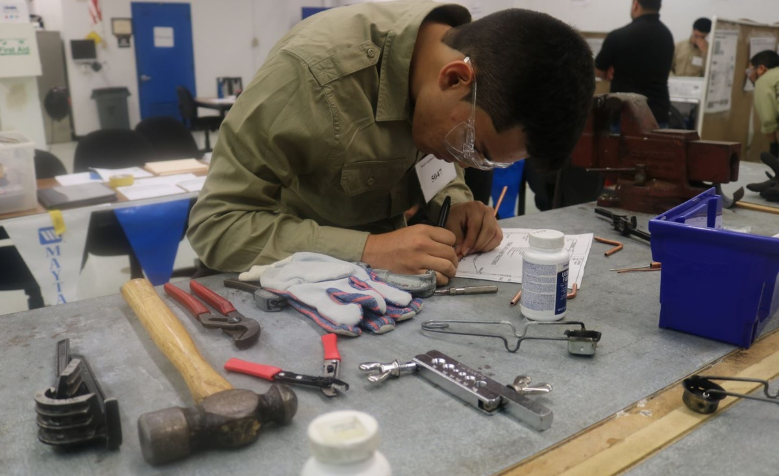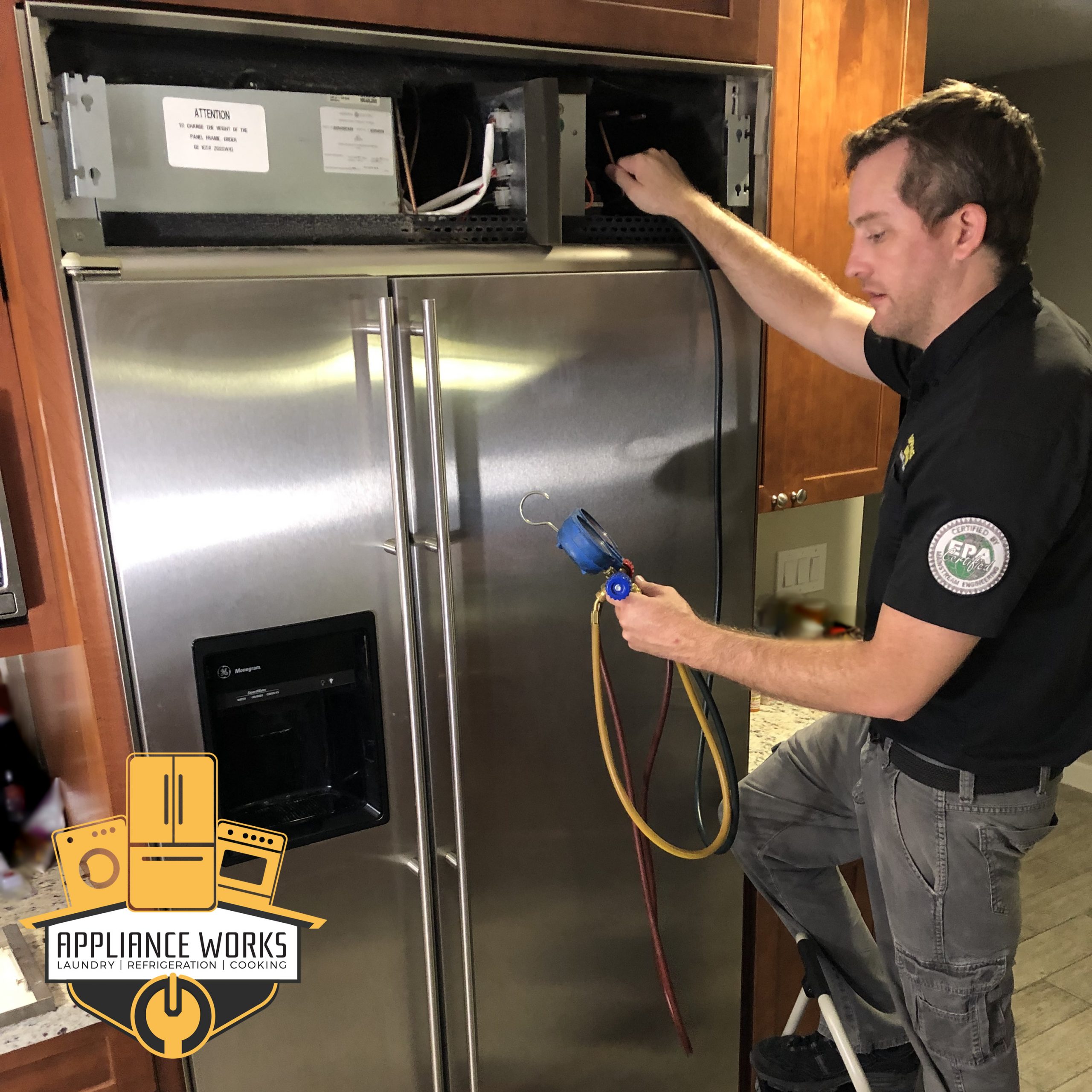10 Signs You Need Help from the Best Appliance Repair Company In Oro Valley Dependable Refrigeration & Appliance
10 Signs You Need Help from the Best Appliance Repair Company In Oro Valley Dependable Refrigeration & Appliance
Blog Article
Important Tips for Effective Ref Fixing to Extend Home Appliance Life Expectancy
When it comes to your fridge, appropriate fixing and maintenance are important for longevity. Comprehending typical troubles and knowing when to act can make all the distinction.
Understanding Typical Refrigerator Troubles
Refrigerators are essential in maintaining your food fresh, yet they can encounter a series of common problems that interrupt their performance. One regular problem is poor cooling. If you observe food ruining quicker than common, examine the thermostat setups or consider if the door seals are damaged. Another typical trouble is too much sound, which can show a malfunctioning compressor or a failing follower. You might also experience water merging inside or beneath the fridge; this usually arises from a clogged up defrost drainpipe or a faulty water line. Furthermore, if your refrigerator's light isn't functioning, maybe a simple bulb concern or a problem with the door switch. Ice build-up in the fridge freezer can impede air movement and cooling performance. Recognizing these concerns early can conserve you time and cash in repair work, guaranteeing your fridge runs efficiently and efficiently.
Normal Maintenance Practices
To keep your home appliances running efficiently, you require to remain on top of regular upkeep practices. Tidy the condenser coils, examine the door seals, and check the temperature settings to guarantee peak efficiency. These straightforward jobs can save you time and money on repair services down the line.
Tidy Condenser Coils On A Regular Basis
Cleansing your condenser coils consistently can significantly enhance your home appliance's performance. Dust and dust build up on these coils in time, causing your appliance to work tougher and eat more energy. To keep them tidy, unplug your device and thoroughly eliminate any type of protective covers. Make use of a vacuum cleaner with a brush add-on or a soft brush to delicately eliminate particles. If needed, a mixture of warm water and mild detergent can help eliminate persistent grime. Ensure to let every little thing dry totally before reconstructing and plugging the device back in. Aim to cleanse your coils at least twice a year, or regularly if you have pet dogs or stay in a messy atmosphere. This straightforward task can extend the life-span of your appliance substantially.
Examine Door Seals
Three simple actions can assist you assure your appliance's door seals are in good problem. Initially, check the seals regularly for any kind of cracks, splits, or indications of wear. These damages can cause air leakages, affecting effectiveness. Second, clean the seals using warm, soapy water to remove any type of debris or crud. A clean seal guarantees a tight fit and far better performance. Ultimately, do an easy test by closing the door on a paper. If you can easily draw it out without resistance, the seal may need replacing. By adhering to these actions, you'll preserve your home appliance's effectiveness and longevity, conserving you cash on energy bills and repair work in the future.
Monitor Temperature Setups
Routinely monitoring your appliance's temperature setups is essential for best efficiency and performance. Whether you're handling a fridge, fridge freezer, or stove, watching on these settings can stop numerous concerns. For refrigerators, aim for temperatures in between 35 ° F and 38 ° F; for freezers, remain 0 ° F. If the temperature levels are expensive or low, your device might work harder, wasting power and reducing its lifespan. Use a thermometer to check these settings routinely, particularly after significant adjustments, like relocating your device or changing the thermostat. If you observe variations, readjust the settings appropriately and consult the customer handbook for advice. By staying positive concerning temperature tracking, you'll assure your home appliances run efficiently and last longer.
Fixing Air Conditioning Problems
When your fridge isn't cooling down correctly, it can cause spoiled food and lost cash, so resolving the concern quickly is essential. Begin by inspecting the temperature level settings to verify they go to the suggested degrees, typically around 37 ° F for the fridge and 0 ° F for the freezer. If the setups are proper, evaluate the door seals for any kind of voids or damages; a malfunctioning seal can enable cozy air to enter.
Next, examine the vents inside the fridge and freezer. Validate they're not obstructed by food things, as this can interfere with air movement. Pay attention for the compressor; if it's not running or making unusual sounds, it may require focus. Inspect the condenser coils, generally located at the back or base of the system. Dirt and particles can build up, creating cooling concerns. Tidy them with check out this site a vacuum cleaner or brush to enhance performance. If troubles linger, it could be time to call a specialist.
Taking Care Of Water Leakage and Ice Build-Up
If you're managing water leakage or ice accumulation in your appliance, it's important to determine the resource of the issue. By determining where the water is originating from, you can protect against more issues and prevent expensive fixings. Let's check out some efficient techniques to take on these common issues.
Determine Leak Resources
How can you properly recognize the sources of water leak and ice accumulation in your appliances? Beginning by inspecting the seals and gaskets on your fridge and freezer doors. A used or broken seal can enable cozy air to enter, causing condensation and ice. Next, check the drain pan and water drainage system for obstructions or clogs; a backed-up drainpipe can cause water pooling. Search for any loosened links in the supply of water line, which can create leaks. Check out the defrost drainpipe for ice accumulation, which can disrupt appropriate drain. By systematically inspecting these areas, you'll identify the source of the trouble, allowing you to take the necessary steps to repair it and expand your home appliance's lifespan.
Avoid Ice Formation
To avoid ice development in your devices, beginning by confirming the temperature level setups are ideal. If your fridge or freezer is as well cool, it can bring about extreme ice accumulation. Check the door seals consistently; harmed seals can let warm air in, causing condensation and ice development.
Keep the device well-ventilated and prevent overcrowding, as this can obstruct airflow - Refrigerator repair experts Dependable Refrigeration & Appliance Repair. Routinely defrost your freezer if it does not have an automated defrost feature.
If you see water leakage, recognize and deal with any type of blocked drain holes, as they can add to ice accumulation. Lastly, tidy the coils and confirm they're operating appropriately to maintain peak efficiency. Taking these steps will assist expand your device's life expectancy and efficiency.
Dealing With Noisy Fridge Seems
While it may seem alarming, a noisy fridge usually signals minor concerns rather than major malfunctions. Usual perpetrators include the compressor, followers, and water lines.
Next, look for loosened things inside. Occasionally, containers or racks can rattle, producing undesirable sound. Tighten or rearrange them to remove the audios.
If you notice a clicking sound, it could be the defrost timer. This is normally harmless however might indicate it needs inspection.
An out portable air conditioner repair of balance appliance can produce vibrations and noise. Dependable Refrigeration & Appliance Repair Refrigerator repair specialist of Oro Valley. Addressing these issues without delay can assist keep your fridge's efficiency and prolong its life-span.
When to Replace Components vs. Full Substitute

However, if your device is older and experiencing several problems, a complete replacement might be more cost-efficient. Consider the cost of repair work versus the appliance's worth. If repair services surpass 50% of a brand-new unit's price, it's normally smarter to buy a substitute. Additionally, if you notice ongoing troubles that maintain recurring, it's a sign that your home appliance has gotten to the end of its life. Evaluate these variables thoroughly to make the best decision for your requirements and budget plan.
Knowing When to Call an Expert
Exactly how can you tell when it's time to call in an expert for device repair? If your home appliance stops functioning completely or regularly journeys circuit breakers, it's another red flag.
You should also consider your very own convenience level with repair work. If you're uncertain regarding diagnosing the trouble or do not have the right devices, it's best to get to out for aid. Remember, attempting complicated repair services can lead to more damages and even safety and security hazards.

Regularly Asked Inquiries
Just how Commonly Should I Clean the Refrigerator Coils?
You need to clean your fridge coils every 6 months. This aids maintain efficiency and prevents overheating. If you notice excessive dust or pet hair, clean them much more often to assure your fridge runs smoothly.

Can I Make Use Of Vinegar for Cleaning My Refrigerator?
Yes, you can make use of vinegar to cleanse your fridge! It's an outstanding all-natural cleanser that removes smells and spots. Refrigerator repair experts Dependable Refrigeration & Appliance Repair. Just mix it with water, apply it to surfaces, and wipe down for a fresh, clean refrigerator
What Temperature level Should My Refrigerator Be Ready To?
You ought to establish your refrigerator to 37 ° F(3 ° C) for excellent food conservation. This temperature keeps your food fresh while preventing perishing, guaranteeing your groceries last much longer and reducing waste. It's an easy adjustment you can make!
Does a Fridge Need to Be Leveled?
Yes, your refrigerator requires to be leveled. If it's irregular, it can affect cooling effectiveness and trigger excess noise. Examine the leveling legs and adjust them to guarantee appropriate balance for ideal efficiency.
Exactly How Can I Reduce Refrigerator Energy Intake?
To decrease your fridge's energy consumption, keep it clean and well-ventilated, check door seals for leaks, established the temperature between 35-38 ° F, and avoid overwhelming it. These steps can significantly lower your power costs.
Report this page